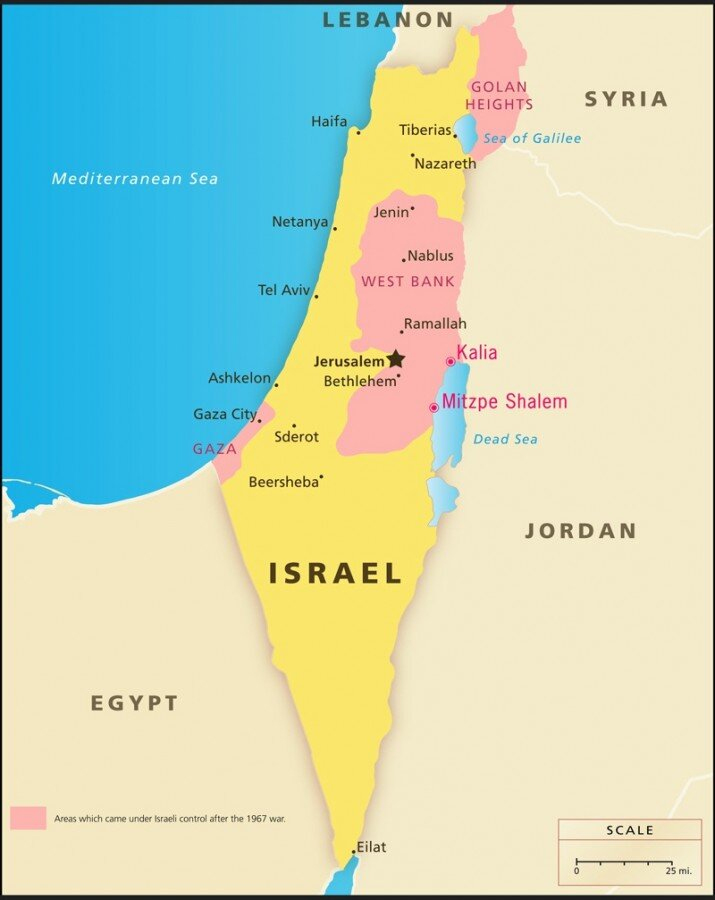International Relations
Defence Joint Working Group: India- Israel
- 30 Oct 2021
- 6 min read
Why in News
Recently, at the 15th Joint Working Group (JWG) meeting on Bilateral Defence Cooperation between India and Israel, has agreed to form a Task Force to formulate a comprehensive Ten-Year Roadmap to identify new areas of cooperation.
Key Points
- The JWG is the apex body of the defence ministries of both the countries meant to “comprehensively review and guide all aspects of Bilateral Defence Cooperation.
- At the meeting, it was also decided to form a Sub Working Groups (SWG) on Defence Industry Cooperation. The formation of this SWG would enable
- Efficient utilisation of bilateral resources,
- Effective flow of technologies and sharing industrial capabilities.
- It was also decided to schedule the Service level Staff talks in a specific time frame.
India-Israel Defence Cooperation
- Background: The strategic cooperation between the two countries began during the Sino-India War of 1962.
- In 1965, Israel supplied M-58 160-mm mortar ammunition to India in the war against Pakistan.
- It was one of the few countries that chose not to condemn India’s Pokhran nuclear tests in 1998.
- It continued its arms trade with India even after the sanctions and international isolation after the nuclear tests.
- Respective National Interests: The strong bilateral ties of India and Israel are driven by their respective national interests.
- India’s long-sought goals of military modernisation
- Israel’s comparative advantage in commercialising its arms industries.
- Scope: The ambit of defence cooperation has widened to include other domains like space, counter-terrorism, and cyber security and intelligence sharing besides Israeli arms sales to India.
- India was the largest arms customer of Israel in 2017 with sales worth 715 million USD.
- According to the Stockholm International Peace Research Institute (SIPRI) report, Israel is the third largest supplier of defence items to India after Russia and the USA, the first and second respectively.
- Defence Technologies Imported by India from Israel:
- Unmanned Aerial Vehicles (UAVs):
- Searcher: It is a multi-mission tactical Unmanned Air Vehicle (UAV) for surveillance, target acquisition, artillery adjustment and damage assessment.
- Hermes 900: In December 2018, Adani Defence and Elbit Systems inaugurated the first India-Israel joint venture in defence at Hyderabad.
- Heron: It is a medium-altitude long-endurance UAV system primarily designed to perform strategic actions .
- Air Defence Systems:
- BARAK: The surface-to-air missile can be deployed as a low-range air defence interceptor. In India, the BARAK version is known as BARAK-8 (for naval vessels).
- Missiles:
- Spike: These are the 4th generation Anti-Tank Missiles with a range of up to 4km, which can be operated in fire-and-forget mode.
- These are manufactured by the Rafael Advanced Defence Systems, Israel.
- Crystal Maze: It is an Indian variant of the air-to-surface missile AGM-142A Popeye – jointly developed by the Israeli-based Rafael and US-based Lockheed Martin.
- Spike: These are the 4th generation Anti-Tank Missiles with a range of up to 4km, which can be operated in fire-and-forget mode.
- Sensors:
- Search Track and Guidance Radar (STGR): India imported the STGR radar to make INS Kolkata, INS Shivalik and Kamorta-class frigates compatible for deploying BARAK-8 SAM missiles.
- Phalcon: This Airborne Warning and Control System (AWACS), is also hailed as Indian Airforce Force’s “eyes in the skies''.
- Unmanned Aerial Vehicles (UAVs):
- Significance of India-Israel Defence Cooperation:
- Patrolling and Surveillance: The Israeli imports eases the operational ability of armed forces in wartime.
- For instance, the missile defence systems, and ammunition played a crucial role in controlling the escalation between India and Pakistan post-Balakot air strikes.
- Make in India: The export-oriented Israeli defence industry and its openness to establishing joint ventures complement both ‘Make in India’ and ‘Make with India’ in defence.
- Trusted Supplier: Israel has always been a ‘no-questions-asked supplier’, i.e., it transfers even its most advanced technology without placing limits to its use.
- Its credibility was reinforced during the Kargil War of 1999.
- Patrolling and Surveillance: The Israeli imports eases the operational ability of armed forces in wartime.
Way Forward
- India-Israel-US Triangle: As the USA sees a major role for India in maintaining the balance of power in the Indo-Pacific more technologies are likely to be transferable in the future.
- With improving strategic understanding between India and the US these technologies can be flexibly deployed to various wings of the military.
- Upscaling Joint Ventures: Indo-Israel defence cooperation must be up-scaled in terms of Joint Ventures (JV) and Joint Research and Development (RD) which can be a force multiplier to realistically achieve India’s ambition to be a major global power.
- Harnessing the Technological Expertise: The strategic cooperation between India and Israel carries immense potential and is only set to grow further. The arms trade will remain the bedrock of this bilateral engagement as the two nations seek a wider convergence.
- With the ideological and leadership winds blowing in favour of a burgeoning partnership, the time is ripe for India to harness the technological expertise from Israel to modernise an ailing indigenous defence industry.





